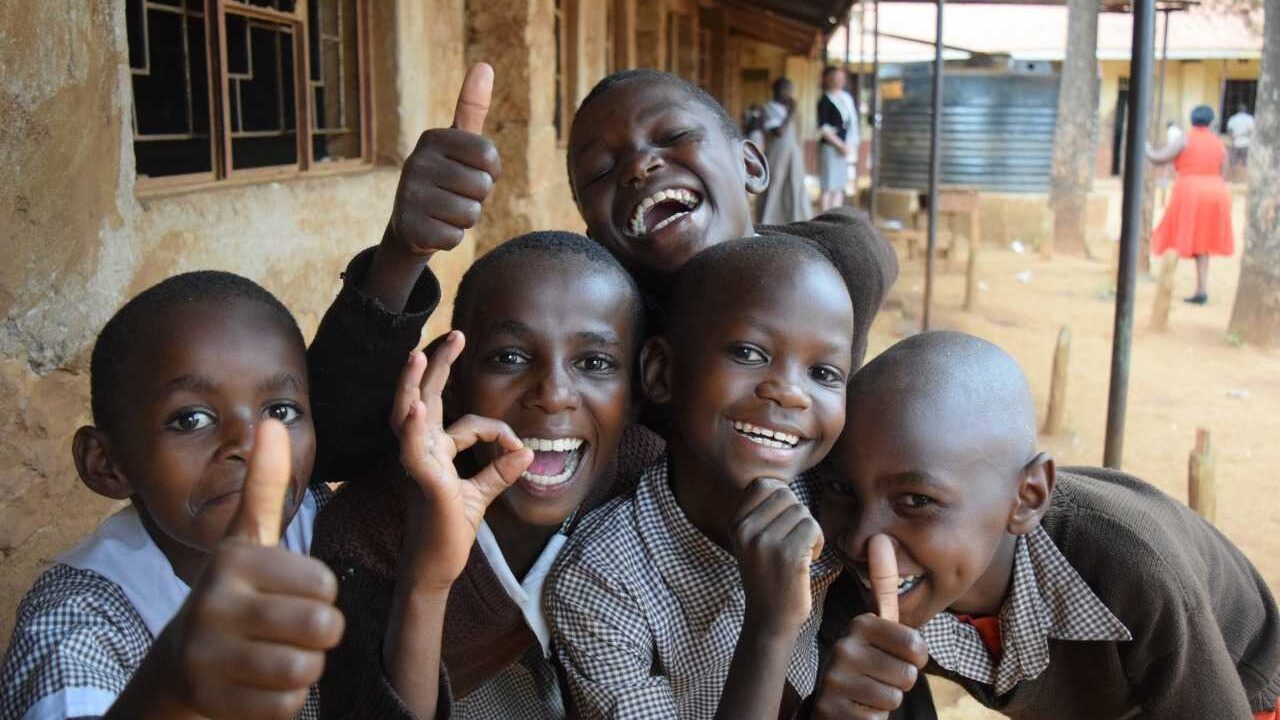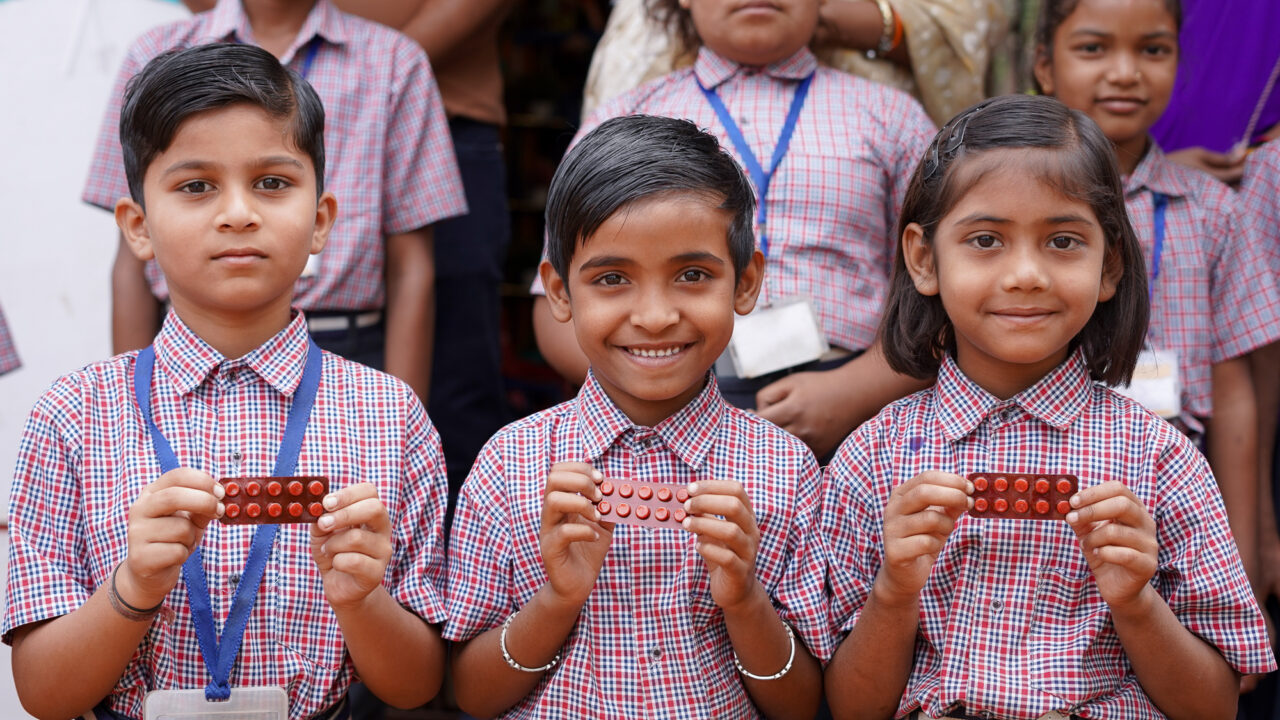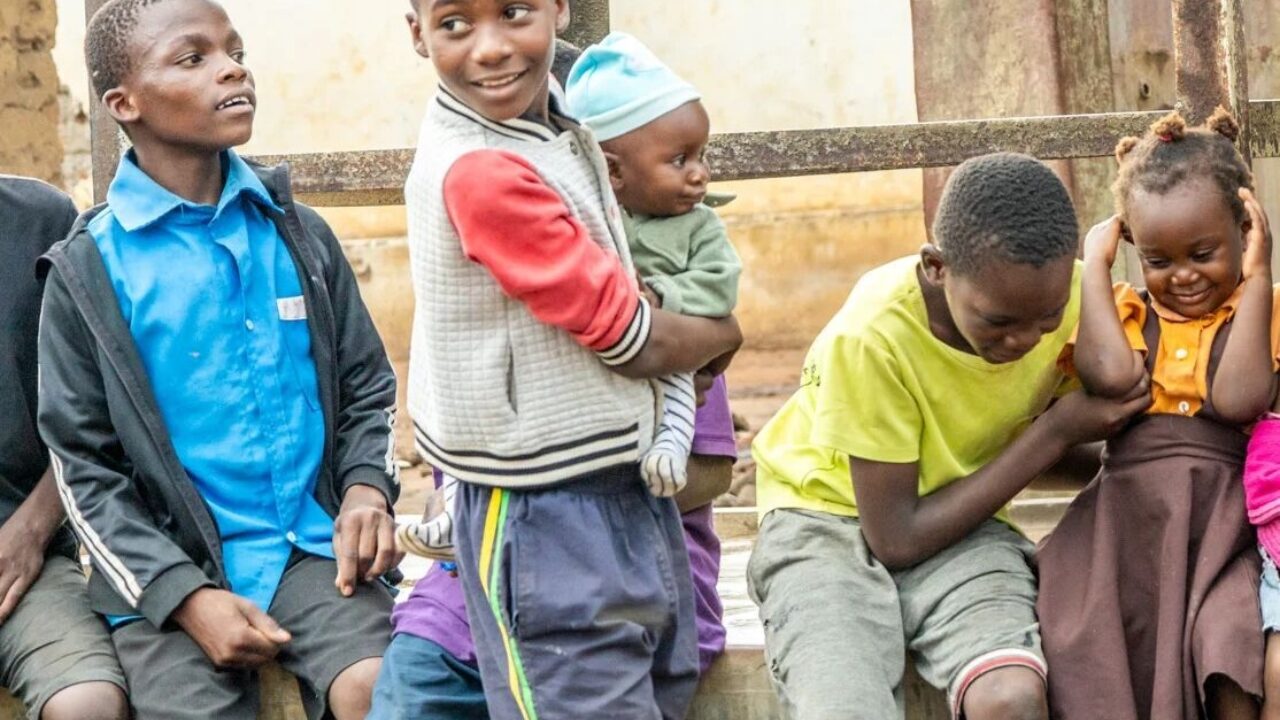Since 2014, our Deworm the World program has helped governments deliver over 2 billion deworming treatments to children, all for less than $0.50 per treatment on average. In 2023 alone, we supported the treatment of over 195 million children across India, Pakistan, Nigeria, and Kenya, according to government reported figures.
But these numbers are only part of our story. Behind these impressive results is the tireless work and passion of not only our teams but also government partners, teachers, and health workers. Despite new obstacles and unique challenges, our shared commitment to defeating parasitic worm infections keeps us iterating and innovating to reach children at risk.
One challenge we tackled recently was addressing low treatment coverage rates in the urban areas of Karachi, Pakistan, and Lagos, Nigeria.
Historically, Deworm the World has primarily leveraged our school-based delivery model. Teachers are trained to administer deworming tablets once or twice a year to all children in schools, and non-enrolled children are invited to come to take advantage of the program within the schoolyard. This approach works very well, particularly in countries like India and Kenya, which have high enrollment rates and robust structures governing public schools. The program is designed to simplify for scale to maximize reach.
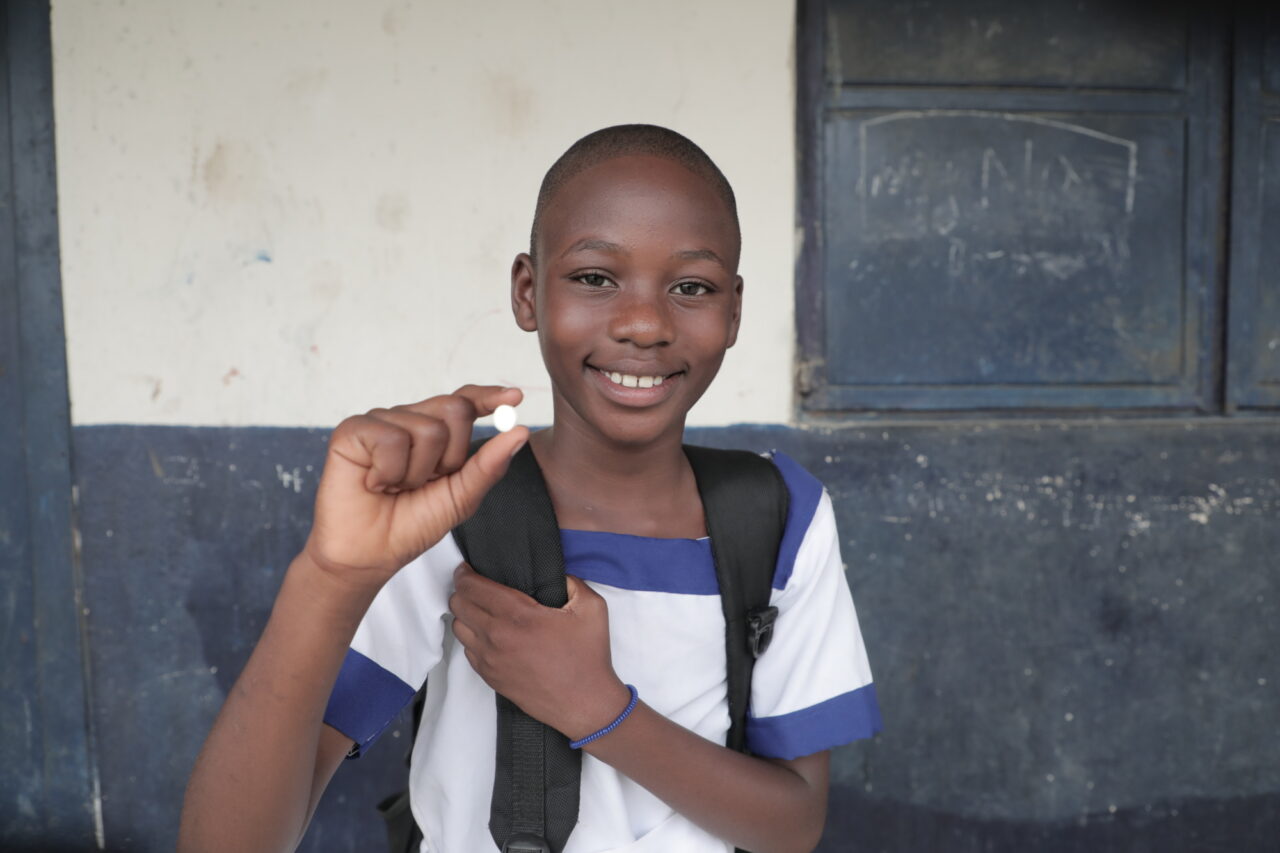
However, initial results using the same approach in the cities of Karachi and Lagos spurred us to iterate in these urban areas. In 2020, in Karachi, we supported the treatment of just over 200,000 of 4.5 million at-risk children in the first deworming round; in 2021, in Lagos, we reached approximately 500,000 out of 1.5 million at-risk children. This was because over 70% of children in both Karachi and Lagos were either out of school or enrolled in unregistered or unknown private and religious schools that were not accessible by the government education systems.
To address this, Deworm the World worked closely with government partners to adapt the delivery platforms to target the children that were hard-to-reach through school-based deworming.
In Karachi, we worked with our local partner, IRD, to leverage the Lady Health Worker program and community health workers (instead of teachers) on the frontlines of polio vaccination efforts to deliver deworming treatments across all types of schools and door-to-door in communities and households. Similarly, in Lagos, community health workers delivered treatment to children in private schools and door-to-door to households, alongside teachers delivering treatments in public schools.
By adapting the delivery platforms to leverage community health workers, we succeeded in dramatically increasing the number of children treated in subsequent rounds. We reached 2.7 million children in Karachi in 2021 (a >1,100% increase due to the first round being a pilot) and 1.2 million children in Lagos in 2022 (a >130% increase) based on government reported figures. We also maintained cost-effectiveness – the cost-per-child was $0.34 in Sindh and $0.41 in Lagos, well below our $0.50 benchmark for cost-effectiveness.
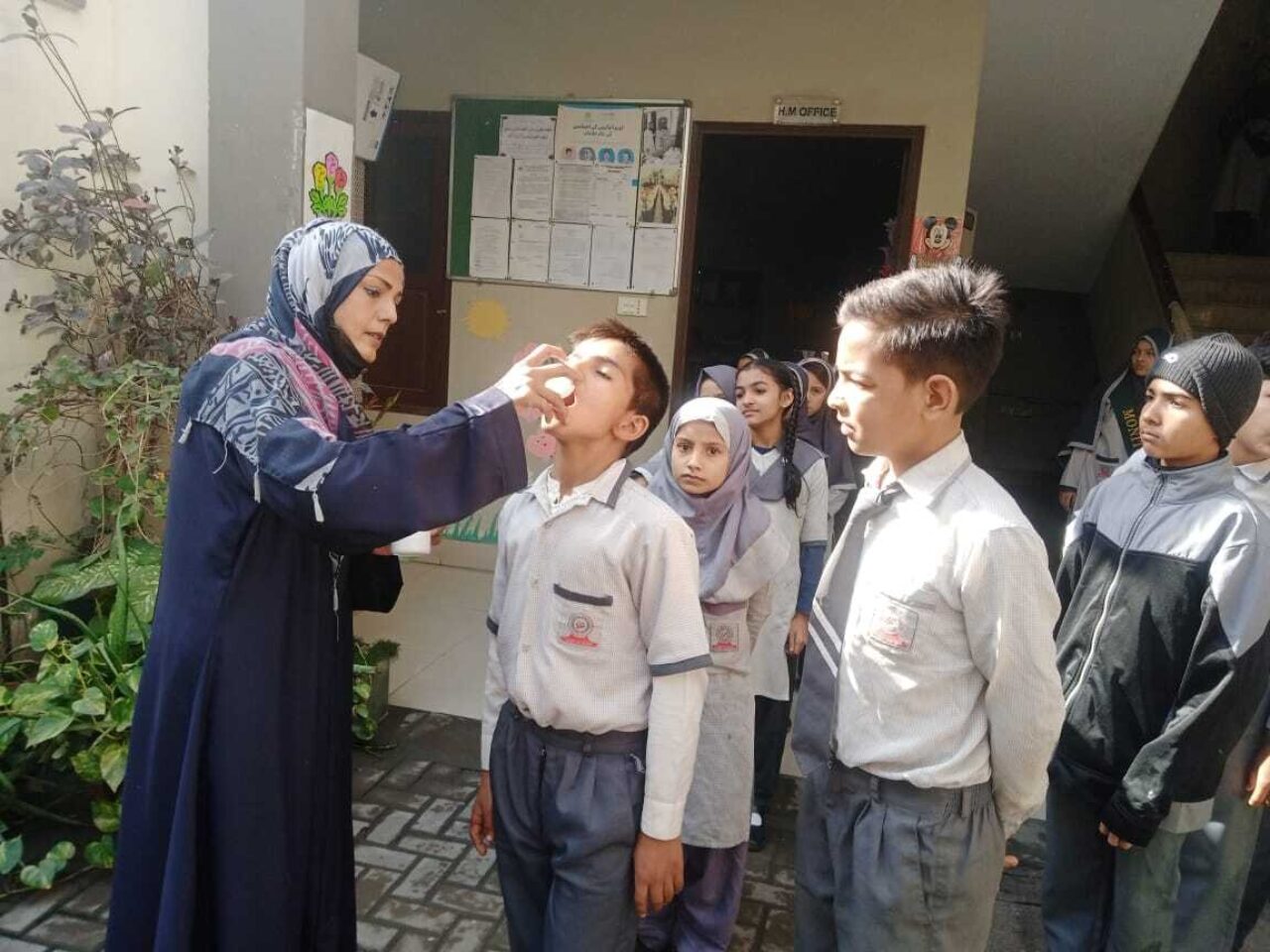
Here are a few of the key ways we applied our organization's core values to this challenge, and ultimately succeeded in driving up our deworming reach in Karachi and Lagos:
1. We used data and evidence to inform decisions, and we asked why and why not in equal measure
In order to assess potential delivery platforms that could expand our reach, we conducted literature reviews to understand how similar programs in Pakistan and Nigeria, such as typhoid and polio vaccination campaigns, reach children at scale, and we engaged stakeholders and partners to learn about their experiences.
We also collected data (e.g., health worker coverage and numbers) and cost inputs to estimate potential coverage and cost-effectiveness (measured by cost-per-child) of different solutions, such as leveraging health workers to treat children in only private schools or engaging health workers to reach all at-risk children through door-to-door mass drug administration.
Detailed scenario analysis for these specific environments enabled us to challenge our prior assumptions, i.e., that leveraging community health workers and/or community-based treatment can be cost prohibitive. We were able to determine that these platforms can also be cost-effective when applied in the appropriate context. This includes: 1) urban areas with densely populated households whereby health workers are able to administer treatments door-to-door more easily; 2) geographies where health workers have existing connections with schools and communities due to similar public health campaigns being implemented; and 3) where a large number of children are either out-of-school or enrolled in private and religious schools inaccessible or unregistered by government structures.
2. We leveraged government partnerships and local resources to customize the delivery platform based on local context
Equipped with data and evidence, we worked hand-in-hand with government stakeholders to adapt the delivery model based on local context, leveraging existing national and sub-national systems and structures.
In Karachi, Evidence Action and IRD collaborated with the Department of Health in Sindh province to utilize community health worker networks that were established for polio vaccinations to deliver deworming treatments in schools and communities. Similarly, in Lagos, we partnered with the state ministries of health and education to design a hybrid delivery model – trained community health workers delivered treatment in private schools and communities, while public school teachers delivered treatment to students in their schools.
Community mobilization activities also used social mobilizers involved in other public health campaigns, such as polio and typhoid vaccinations, across Karachi and Lagos to help raise awareness about the deworming programs and their benefits.
By closely collaborating with the government to leverage existing infrastructure, community connections, and local resources, the programs achieved remarkably higher treatment coverage rates in both Karachi and Lagos, across schools and communities in various settings.
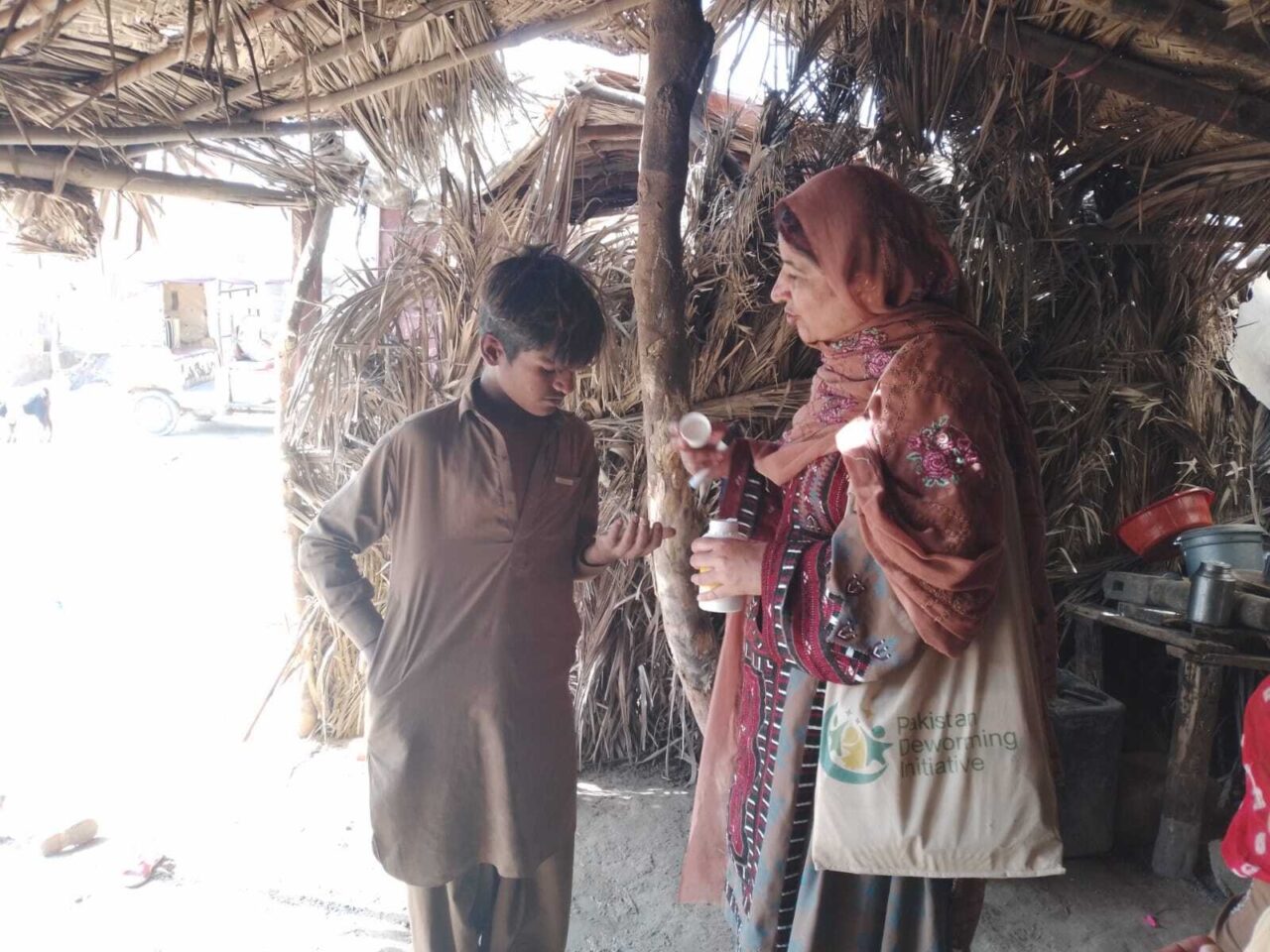
3. We measured and monitored for continued program improvements
We adapted our monitoring, evaluation, and learning methodologies to collect data on the new delivery platforms, and are continuing to analyze strengths and weaknesses to inform program enhancements.
Data from independent coverage evaluation surveys – a WHO-recommended tool to evaluate program performance that we deploy after each deworming round – exposed challenges related to treatment reporting inaccuracies under the adapted delivery platforms in both Karachi and Lagos. This prompted our teams to advocate with government stakeholders to strengthen their reporting structures and systems in following rounds.
A few measures taken to date include: capacity building for sub-district level government officials to conduct comprehensive data reviews, emphasis in training sessions for community health workers on the importance of accurate and timely reporting, and establishment of WhatsApp groups to send reminders to all stakeholders about reporting processes. We are also currently supporting data quality assessments – another WHO-recommended tool – after each round to further understand the underlying challenges in the reporting systems and inform additional improvements.
Our experiences in Karachi and Lagos have given us the framework to adapt delivery platforms in other geographies, such Khyber Pakhtunkhwa in Pakistan and Cross River state in Nigeria, where large populations of out-of-school children and those in private schools present challenges in increasing coverage rates.
This is just one example of how we applied Evidence Action’s core values to support decision-making: we used data and evidence first to inform changes in program design; we challenged our own prior conventions and used data to determine that community-based platforms can be as cost-effective as school-based platforms when applied in the appropriate context; and we iterated again by using monitoring and evaluation data and insights to inform improvements in program implementation.
Applying our core values across our work allows us to continue to scale deworming, reaching millions of children in Karachi, Lagos, and beyond.
